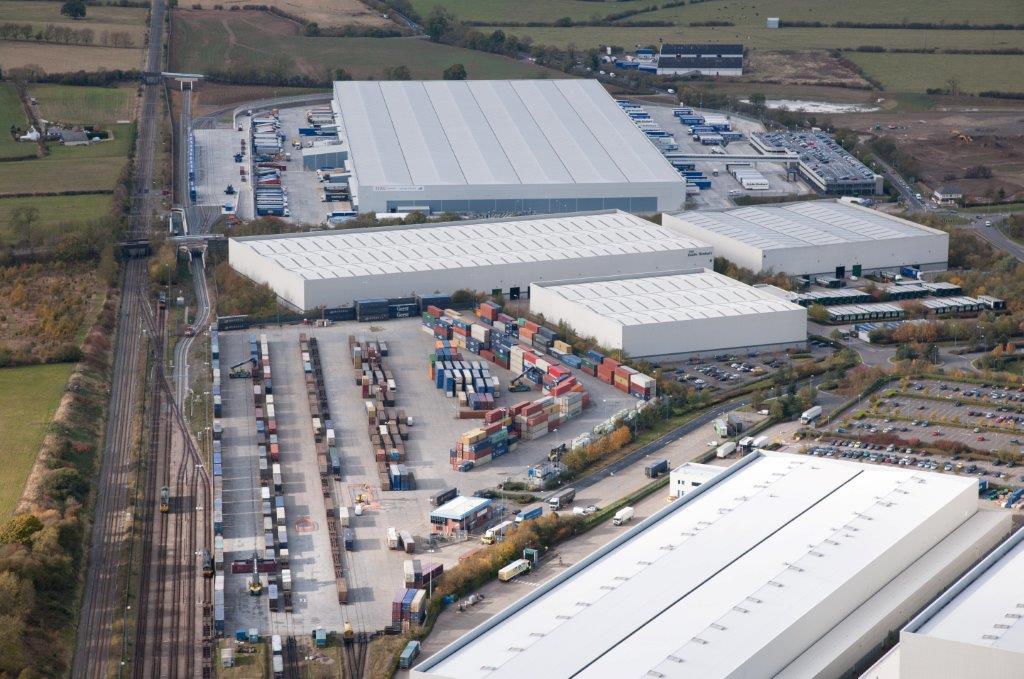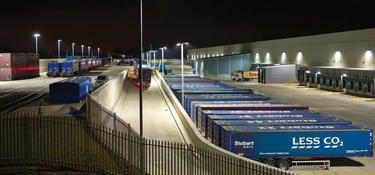Whilst the coronavirus pandemic has caused a sharp reduction in the number of passengers travelling by train, the role of the UK’s railways in transporting essential goods requiring distribution to supermarkets and national distribution centres has never been more important. In fact, for the first time in many years, rail freight is currently being prioritised over passenger trains: proof, if proof were needed that rail freight, and the West Coast mainline, really is the backbone of Britain’s logistics supply chain.
With many supermarkets across the UK operating at, or close to, peak operational capacity during the current crisis, rail freight has played a vital role in ensuring critical food and supplies can continue moving smoothly and Prologis DIRFT in Northamptonshire is at the heart of the UK’s distribution efforts. Located on the West Coast Mainline, DIRFT’s central location in the East Midlands acts as a crucial rail freight interchange between Scotland and London. In fact, such is the importance of these two key routes, Network Rail is currently prioritising them – an indication of their national significance in keeping the UK flow of goods moving.
Over the past few years, rail freight, once associated with the movement of heavy, dirty substances such as coal and aggregates, has found itself a starring role in the distribution of all manner of goods; from water and whisky to all-important household essentials such as toilet paper, milk and cereal. And, thanks to a global push for greener, more resilient supply chains, which reduce HGV miles and subsequent air pollution, its popularity is set to increase.
Whilst the importance of rail freight is often overlooked, its contribution to the UK economy is significant. Currently, the UK rail freight industry brings an estimated £1.6 billion per year in productivity gains for UK businesses, and this is expected to grow, particularly given that the current crisis has brought the need for more resilient supply chains into sharp relief. There is also significant government policy supporting the use of rail-served logistics.
Thousands of tonnes of freight pass through the three rail freight terminals at Prologis DIRFT every day and, whilst some of the items may be well known, others may come as a surprise. Automotive parts, furniture, electrical goods, clothes and most of the nation’s favourite food brands all pass through DIRFT. In fact, the transportation of consumer goods now accounts for 40% of the UK’s rail freight and this number is growing rapidly.
With punctuality for freight trains over 90% and the ability to move goods in a quick, cost-effective and sustainable way, it’s little wonder that supermarkets such as Tesco and Sainsbury’s – both of whom use rail freight to serve their national distribution centres at DIRFT – rely on rail to get goods where they need to be.
In the middle of a crisis, where feeding the nation is a top priority, it’s good to know that rail freight is helping us keep everything on track.

The Daventry International Rail Terminal (DIRFT) and the 1 million sq ft Sainsury’s unit (centre top)

